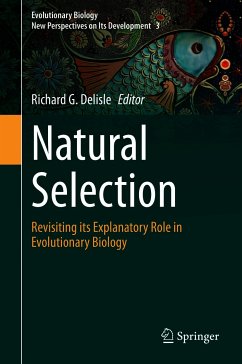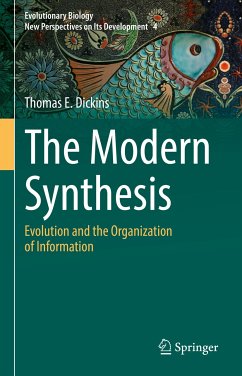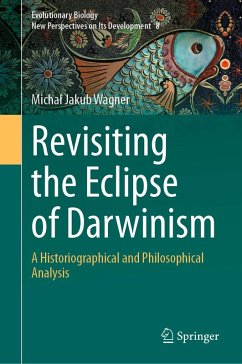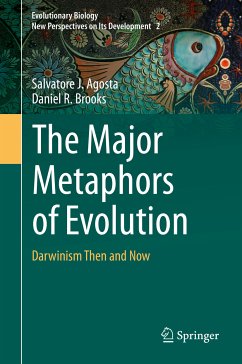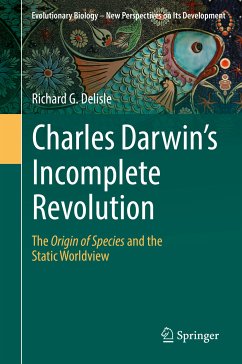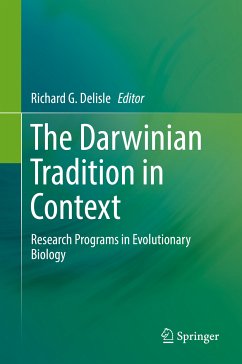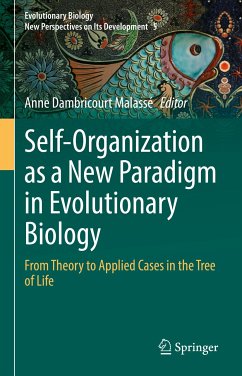
Unity and Disunity in Evolutionary Biology (eBook, PDF)
Deconstructing Darwinism
Redaktion: Delisle, Richard G.; Ceccarelli, David; Esposito, Maurizio
Versandkostenfrei!
Sofort per Download lieferbar
145,95 €
inkl. MwSt.
Weitere Ausgaben:

PAYBACK Punkte
73 °P sammeln!
It is not uncommon to see in major areas of research concerned with science that historical studies are accompanied by the rise of complementary or contradictory historiographies. With time, it seems, scholars discover new approaches to study topics, thus questioning old concepts, traditions, periodizations and historical labels. Apparently, this has not been the case in evolutionary thought. In that area, the main historiographic labels such as Darwinian Revolution, Eclipse of Darwinism, and Modern Synthesis have been in place and largely uncontested for about 50 years. Such labels seem to wo...
It is not uncommon to see in major areas of research concerned with science that historical studies are accompanied by the rise of complementary or contradictory historiographies. With time, it seems, scholars discover new approaches to study topics, thus questioning old concepts, traditions, periodizations and historical labels. Apparently, this has not been the case in evolutionary thought. In that area, the main historiographic labels such as Darwinian Revolution, Eclipse of Darwinism, and Modern Synthesis have been in place and largely uncontested for about 50 years. Such labels seem to work as irrefutable, and often hidden, premises of many historical reconstructions, philosophical analyses, and scientific conceptualizations.
This volume aims to move beyond this state of affair, opening new thinking avenues by revisiting the traditional historiography and laying the groundwork for establishing a "new historiography" that considers the intertwined threads that compose evolutionary biology. Notably, evolutionary studies seem to have been marked by the tension between unification attempts and the proliferation of approaches, methodologies, and styles of thinking. As the contributors to this volume illustrate, research traditions branched off throughout the history of evolutionary thought, before and after Charles Darwin. The resulting complexity challenges traditional thinking categories, throwing a somewhat different light on a more recent label like the Extended Evolutionary Synthesis.
More than 40 years after the now classic, The Evolutionary Synthesis: Perspectives on the Unification of Biology (1980), edited by Ernst Mayr and William Provine, the contributors to this volume aim to reevaluate where evolutionary biology stands today.
This volume aims to move beyond this state of affair, opening new thinking avenues by revisiting the traditional historiography and laying the groundwork for establishing a "new historiography" that considers the intertwined threads that compose evolutionary biology. Notably, evolutionary studies seem to have been marked by the tension between unification attempts and the proliferation of approaches, methodologies, and styles of thinking. As the contributors to this volume illustrate, research traditions branched off throughout the history of evolutionary thought, before and after Charles Darwin. The resulting complexity challenges traditional thinking categories, throwing a somewhat different light on a more recent label like the Extended Evolutionary Synthesis.
More than 40 years after the now classic, The Evolutionary Synthesis: Perspectives on the Unification of Biology (1980), edited by Ernst Mayr and William Provine, the contributors to this volume aim to reevaluate where evolutionary biology stands today.
Dieser Download kann aus rechtlichen Gründen nur mit Rechnungsadresse in A, B, BG, CY, CZ, D, DK, EW, E, FIN, F, GR, HR, H, IRL, I, LT, L, LR, M, NL, PL, P, R, S, SLO, SK ausgeliefert werden.




